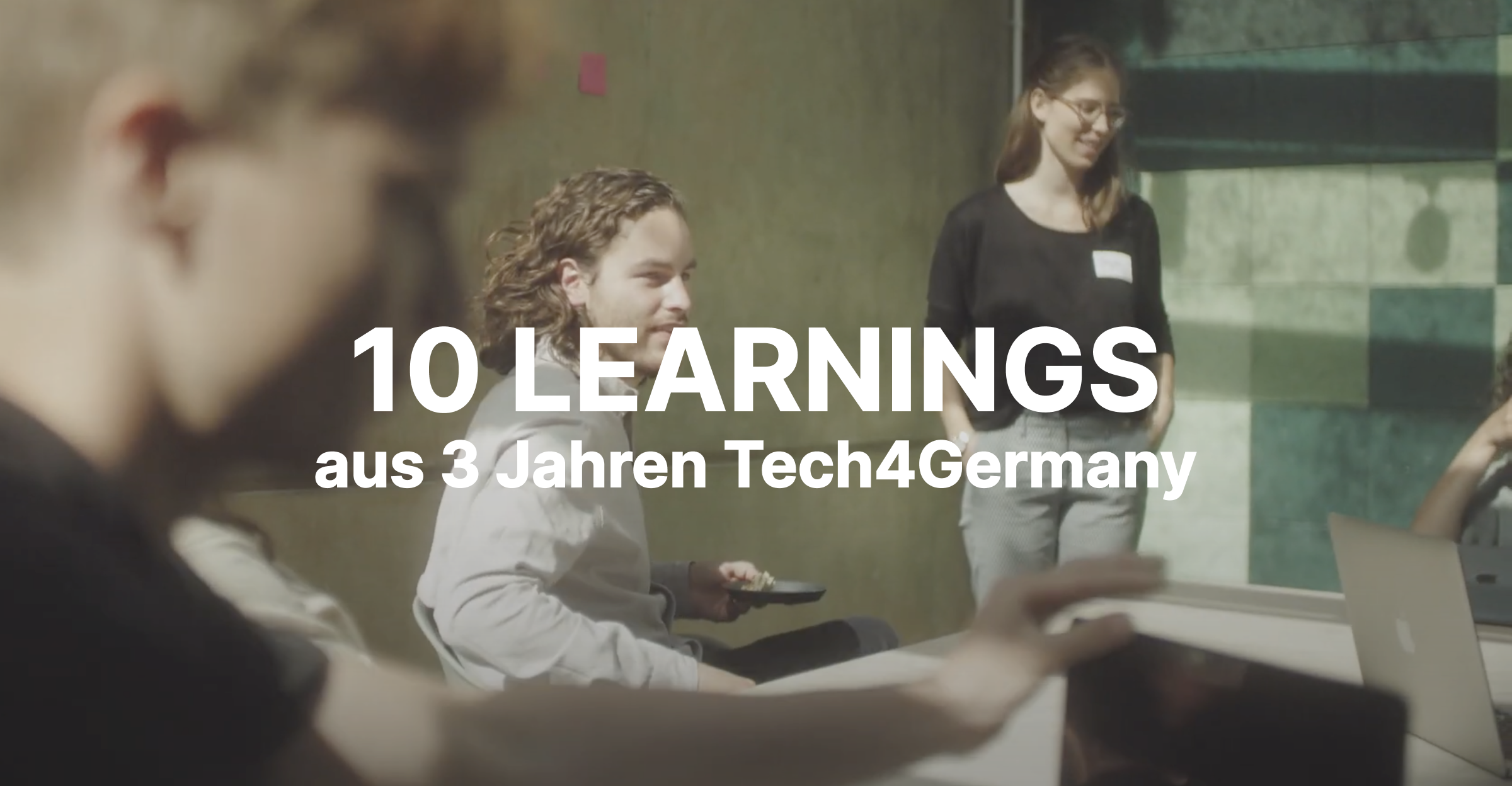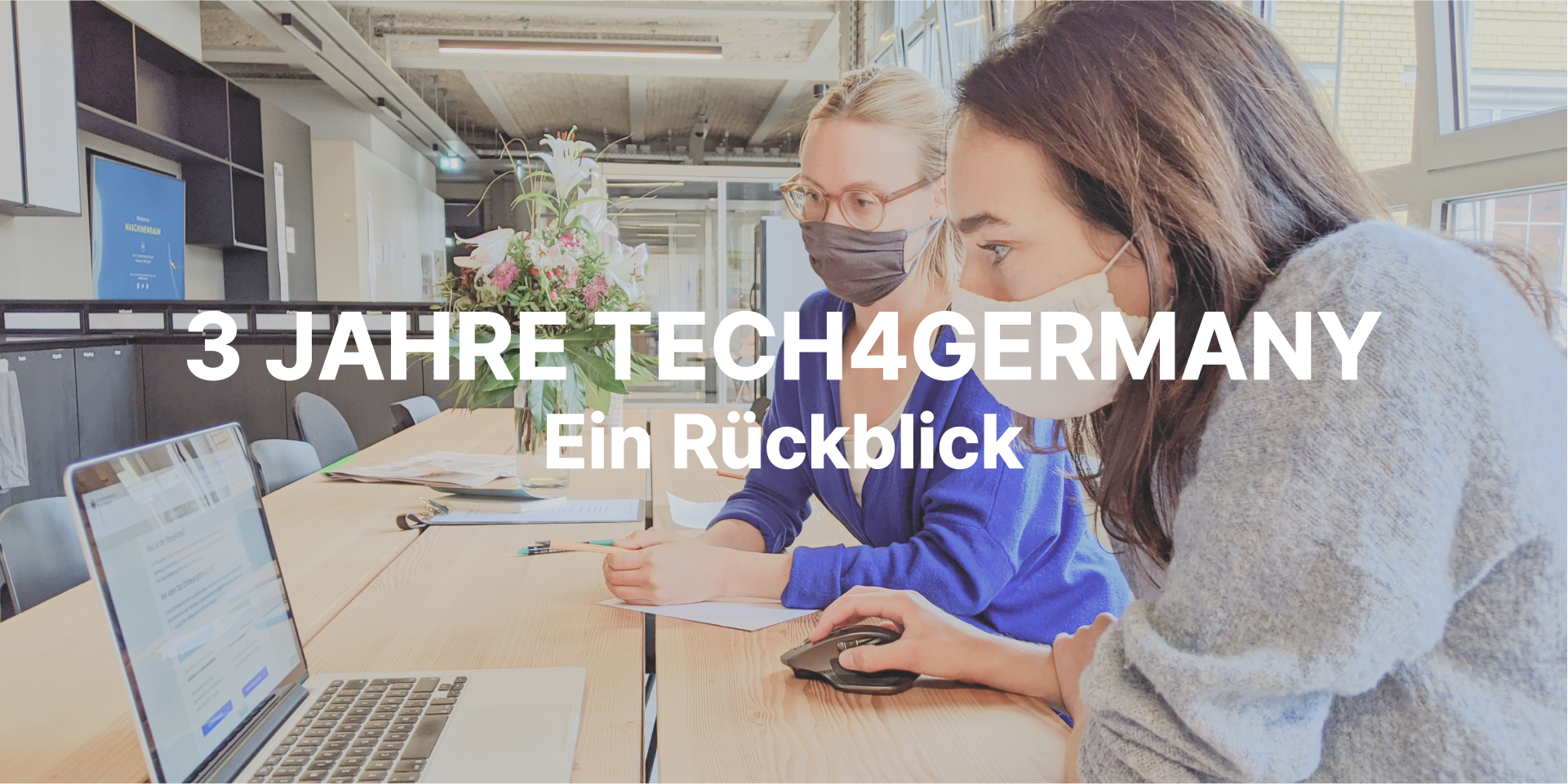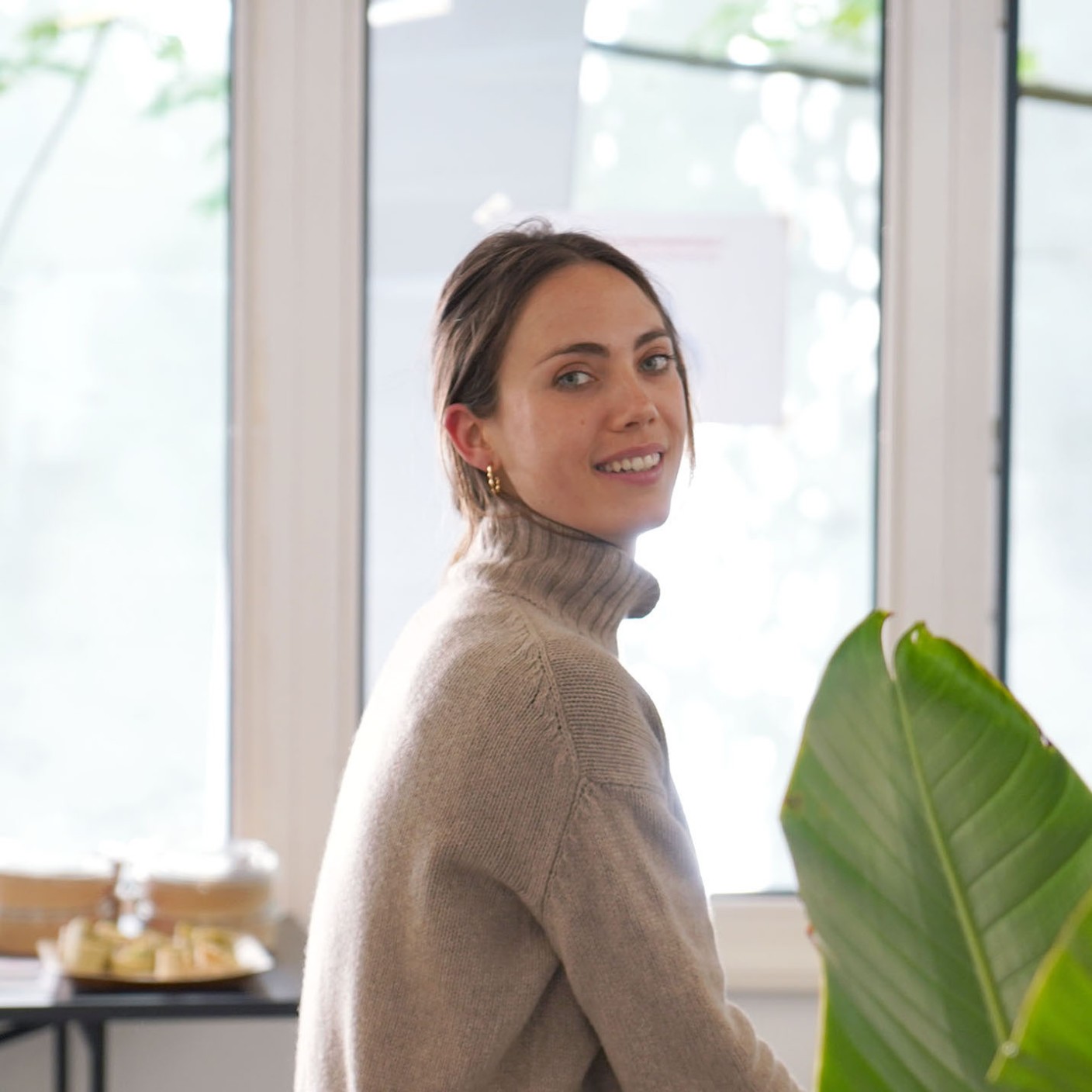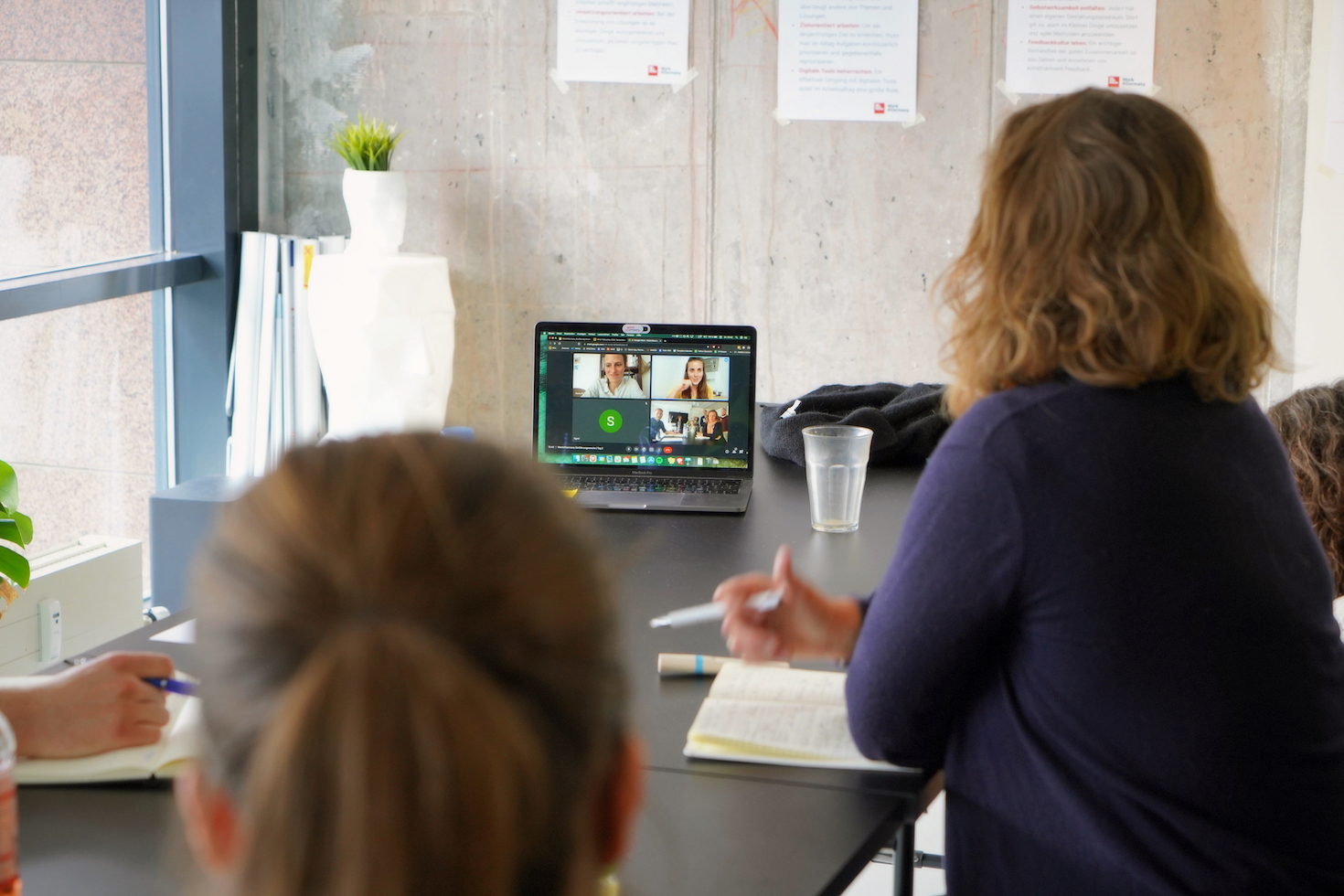
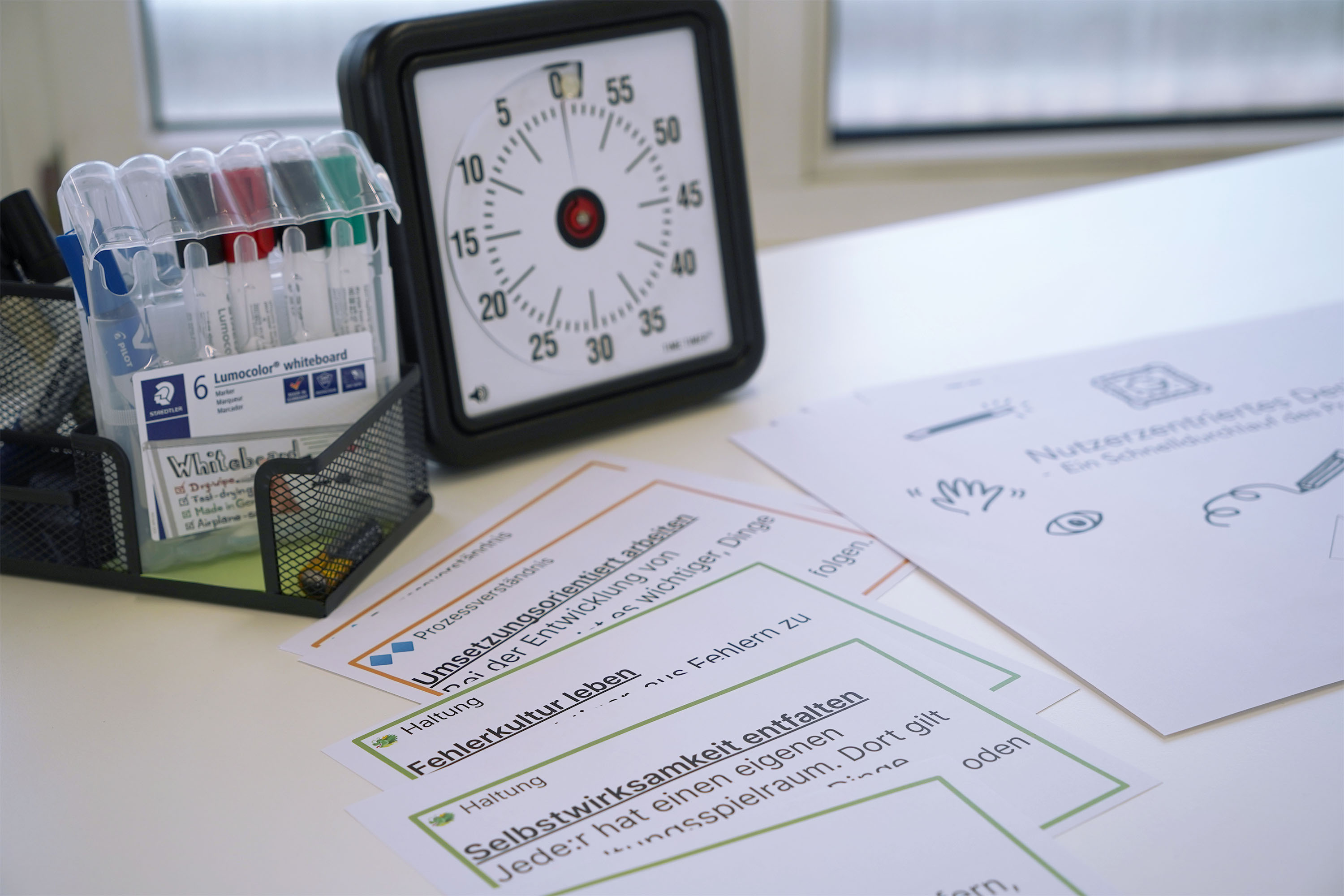
Promoting skills and methods sustainably at the federal level
One of the most important missions of our fellowship programs, Tech4Germany and Work4Germany, is to ensure that civil servants in Germany’s federal ministries are able to confidently navigate in an increasingly digital world. By bringing civil servants together with so-called fellows - designers, software developers, product managers and transformation experts - our aim is to show the benefits of new ways of working. Over the course of the fellowship programs, fellows work in close tandem with their partners from the ministries on a concrete project, developing new digital solutions or implementing new processes.
But what happens when the fellows leave? The project partners are left with a wealth of new experience, but without the fellows and the freedom provided by the program, they often struggle to embed their new skills and ideas into their day-to-day work. It is a challenge to break through long-established processes, structures and habits.
So we asked ourselves the question: how can we ensure project partners are able to effectively use their new skills and competencies beyond the fellowships?
The obvious solution: a learning program to build up a theoretical foundation and teach new skills
Therefore, in 2021, we launched a new 12-module learning program for our project partners. The modules covered topics such as user-centeredness, new leadership, open data or the agile mindset and methods. Additionally, we invited guest speakers from various public sector organisations who presented case studies, including their successes and challenges.
By providing a better theoretical and practical understanding of new methods and ways of working we hoped it would be easier for our project partners to transfer their new skills into their daily work. In turn, this would contribute to a longer-term transformation of the civil service.
We piloted this learning program for both Tech4Germany and Work4Germany and then took some time at the end to reflect on what worked, and what did not.
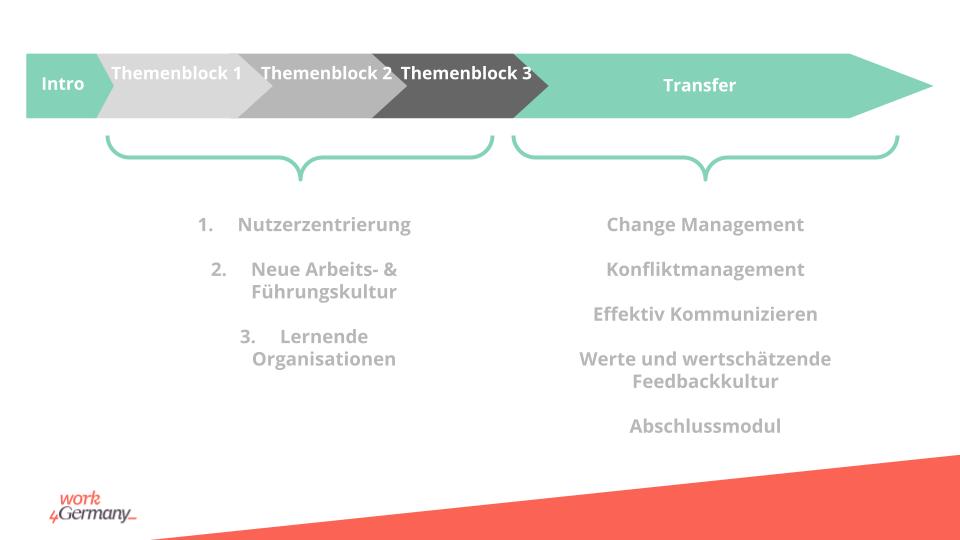
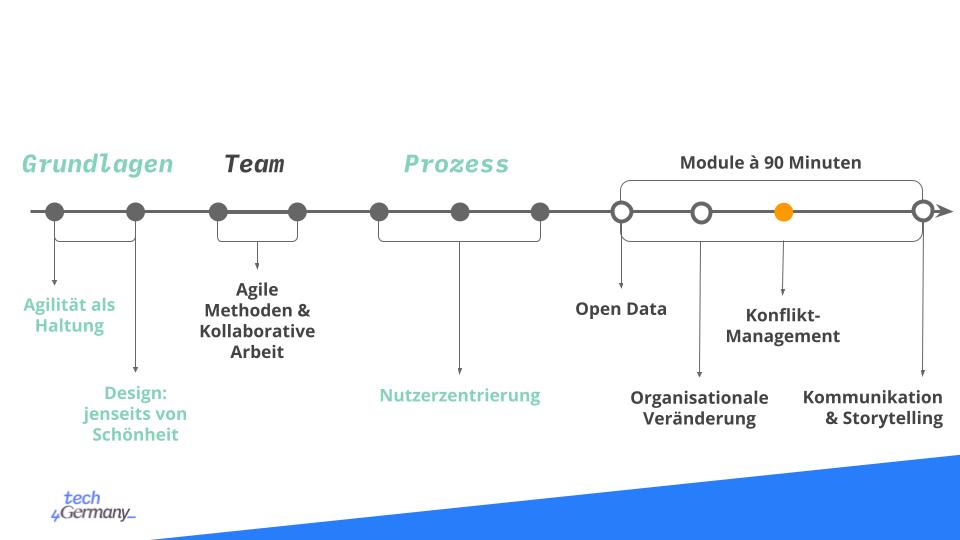
This article summarises our assumptions, learnings and changes to the program. Sneak peak: this year we have changed the design of the learning program entirely and are currently building up an internal team of transformation experts to deliver the learning elements (more on that later).
What we have learned and what we have changed
Use the trojan horse approach - but in a good way
What we assumed
Last year we assumed that the learning program would be greeted with open arms in a context where very few resources are allocated for professional development. For various reasons this was not the case, and participation was consistently lower than it should have been, even though we presented the learning program as mandatory.
What we learned
One of our observations is that learning, or professional development, is not culturally or systemically regarded as a priority within the federal civil service. Additionally, our learning program was "unofficial," (i.e. not run or certified by the body in charge of public sector training programs) which may have decreased participants’ motivation.
The constant weighing up of priorities in an already demanding job, combined with the permanent struggle to carve out free time for the fellowship, made it difficult for many people to attend the learning modules.
What we changed
This year, there is no longer a separate learning program, rather all training elements are fully embedded into the existing touchpoints and formats of the fellowship.
Less theory, more hands-on
What we assumed
Last year, we invited many guest speakers and experts to explain the theoretical foundations of agile and other new work approaches. We assumed that if participants understood the theory - and saw the research - they would be more receptive to new work approaches, as well as better at explaining these to others (leveraging the multiplier effect). In addition, we assumed that the guest speakers would increase the attractiveness of the continuing education program.
What we learned
More than once we received the feedback that although the theory was helpful, participants preferred the practical and interactive parts of the learning program. These were the modules in which we tried out various methods, which participants could apply directly to their daily work.
What we changed
This year we still include short inputs to introduce new topics, but all formats will be almost entirely hands-on.
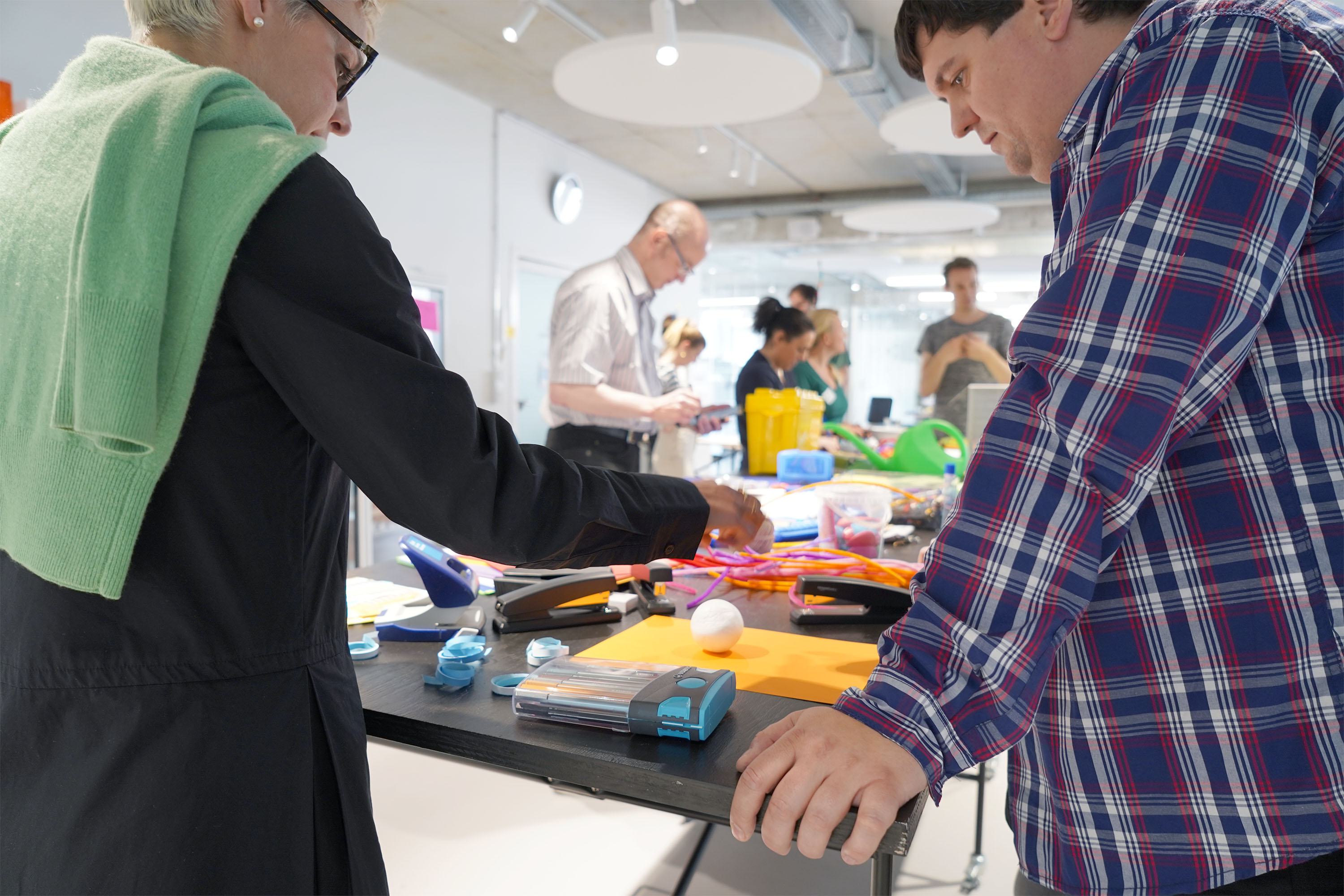
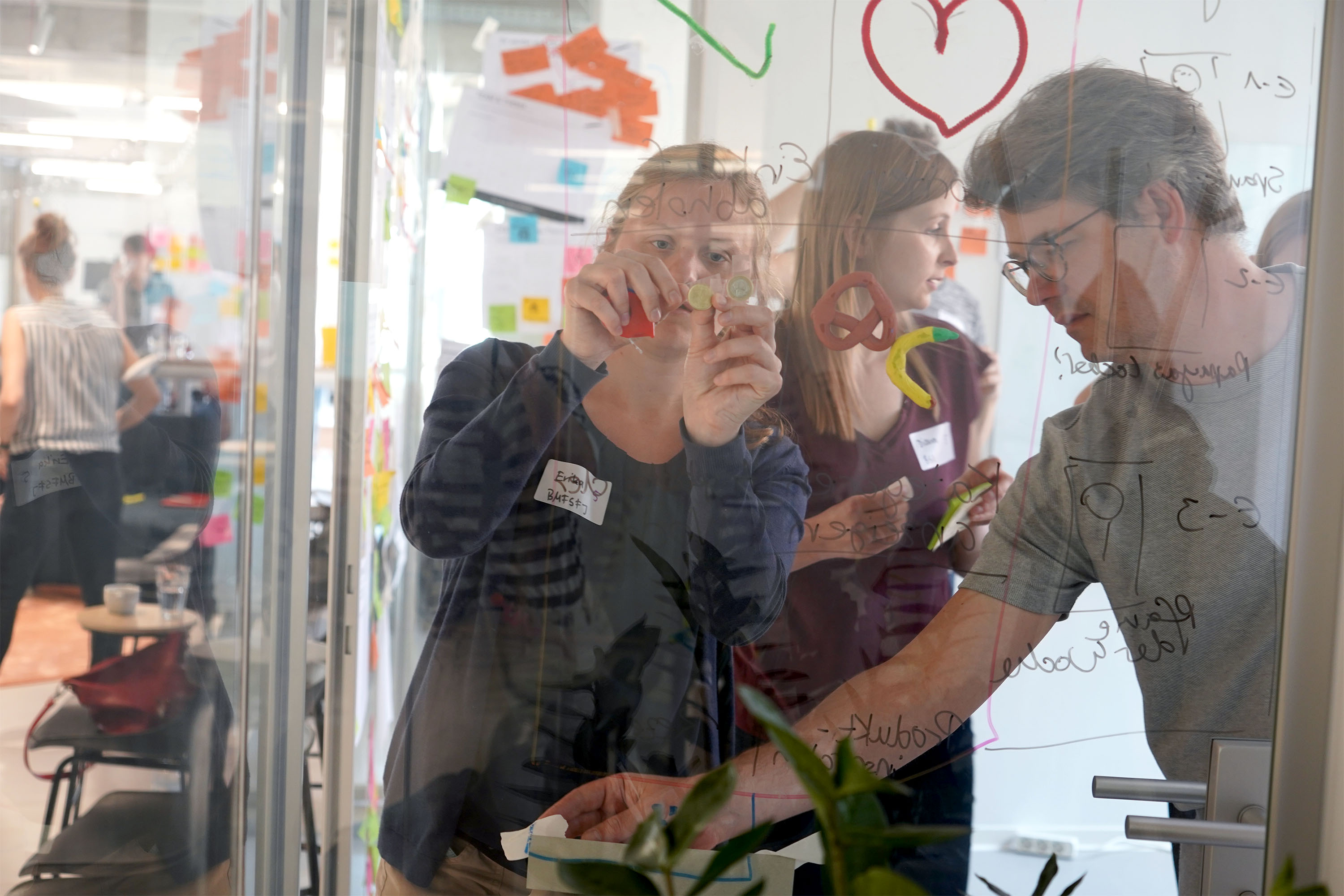
Time is of the essence
What we assumed
The learning program consisted of twelve two-hour online modules, which took place either weekly or biweekly. We hoped that this regularity would help participants plan their time and thereby ensure reliable and frequent participation.
What we learned
Contrary to what we assumed, the design of the learning program did not guarantee reliable participation - almost the opposite. The recurring modules were difficult for participants to fit into their daily work. Additionally, the fact that the modules were online meant that participants could not fully immerse themselves into the learning experience, and were often distracted by other tasks.
Finally, urgent topics often arose last-minute and had absolute priority, meaning that participants would often drop out. This structural conflict was something that neither we, nor the participants, could effectively plan for or avoid.
What we changed
This year, we are reducing the overall number of formats and touchpoints with our project partners. Those we do have will be fewer but longer and more intense, taking place onsite to encourage participants to truly “switch off” from their normal work and connect with one-another in a different space.
For instance, instead of multiple short calls, we will host a monthly onsite retrospective and planning session, which will be more focused and enable exchange between project partners across ministries.
Additionally, we have decided to include longer touchpoints before the fellowships start and after they end, when they are invited to join the alumni community. This is a more effective use of their time for two reasons: firstly, project partners can focus on their projects during the fellowship. And secondly, touchpoints before the start of the fellowship gives us the opportunity to better prepare project partners, by providing them with a basic understanding of the way we work.
For instance this year all Tech4Germany project partners will attend a two day method workshop to kick off the fellowship. Over these two days they will try out many of the methods that the fellows will later use during their project work.
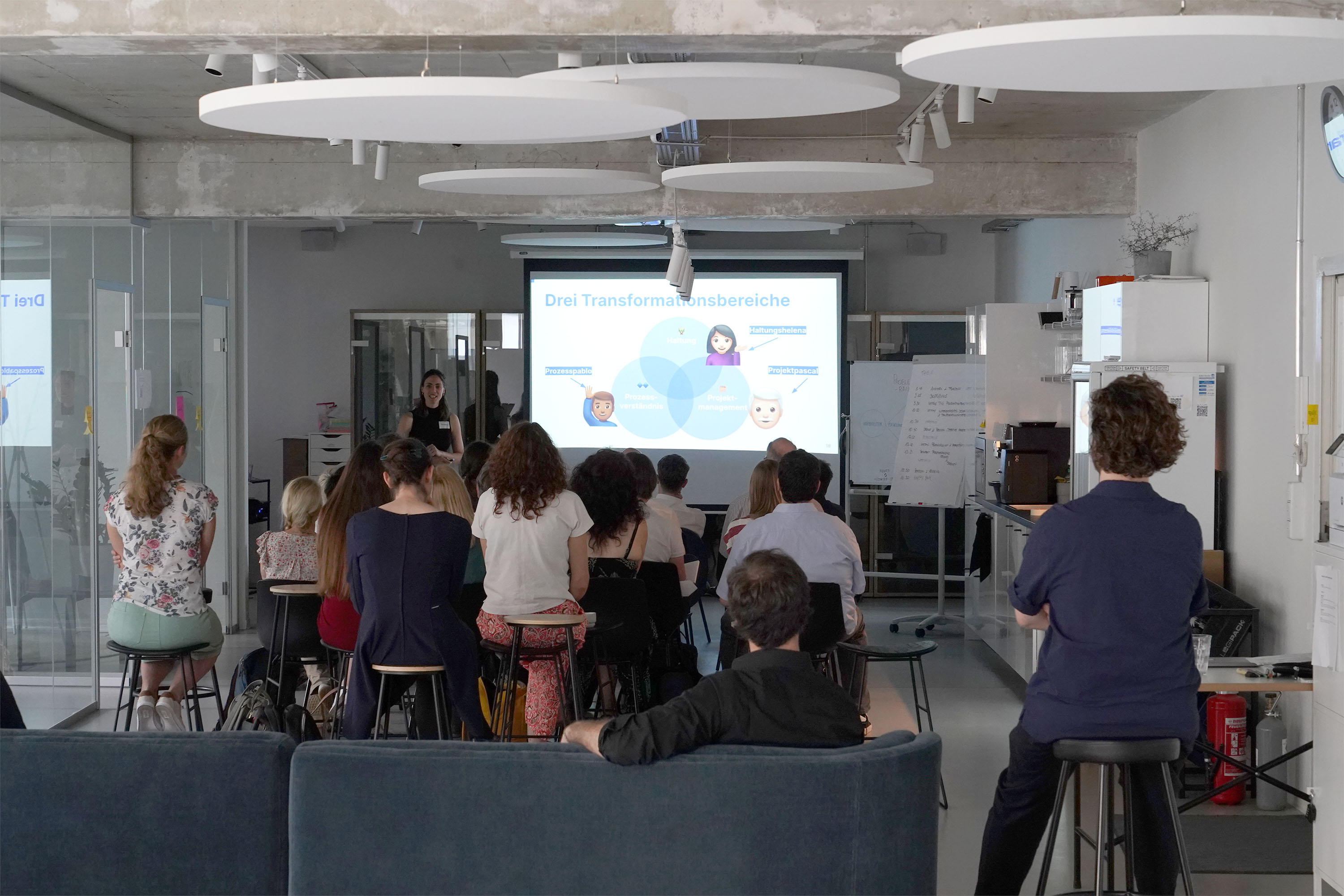
Combine mandatory formats with optional one
What we assumed
Last year, the learning program was included as a mandatory element of the fellowship program and was part of the contract signed by all partner ministries.
What we learned
What we observed is that making the learning program mandatory had an almost counterproductive effect. Participants dropped in and out of modules, attended with switched-off cameras (even if their cameras worked), or replied to emails on the side. This created a strange atmosphere and was often demotivating - both for fellow participants as well as for guest speakers and external trainers.
On the other hand, there were also project partners who went the extra mile, attending almost all formats and throwing themselves fully into the experience to learn as much as possible.
What we changed
This year, all key learning elements are embedded in the core fellowship touchpoints, so there is no longer a distinction between the learning program and rest of the fellowship (see Section 1).
In addition, for those who want to learn more and have the time, we have extra voluntary formats. One of the founding principles of the fellowship programs was to work with a "coalition of the willing". We hope that running extra formats for a smaller group of intrinsically motivated project partners will have a greater impact than working with a larger group of less motivated participants.
Build up internal expertise rather than relying on external experts
What we assumed
Many of the modules last year were designed and delivered by external trainers or guest speakers. Our assumption was that participants would be more open to topics when they are delivered by external experts sharing their research and experience.
What we learned
On the whole however, it was difficult to find people who have solid experience with transformation in the public sector at a federal level. We addressed this by inviting guest speakers from other levels of government (regional, other governmental bodies) but received the feedback that their learnings were difficult to translate to the federal level.
On the whole, the search for and coordination with external speakers required a huge amount of time, and was disproportionate to the short length of the modules.
At the same time, we found that we could learn a lot through the exchanges which took place during the modules with external experts. This tacit knowledge is enormously useful for us as a growing organisation to understand complex administrative issues and challenges.
What we changed
That is why we have established an internal team of transformation experts to work alongside the program managers running the fellowships. One of the tasks of this transformation team is to design and run many of the new formats. Transformation managers will also support strategically important projects, as well as support knowledge-sharing between the fellowships and product teams within the DigitalService, who are often confronted with similar challenges.
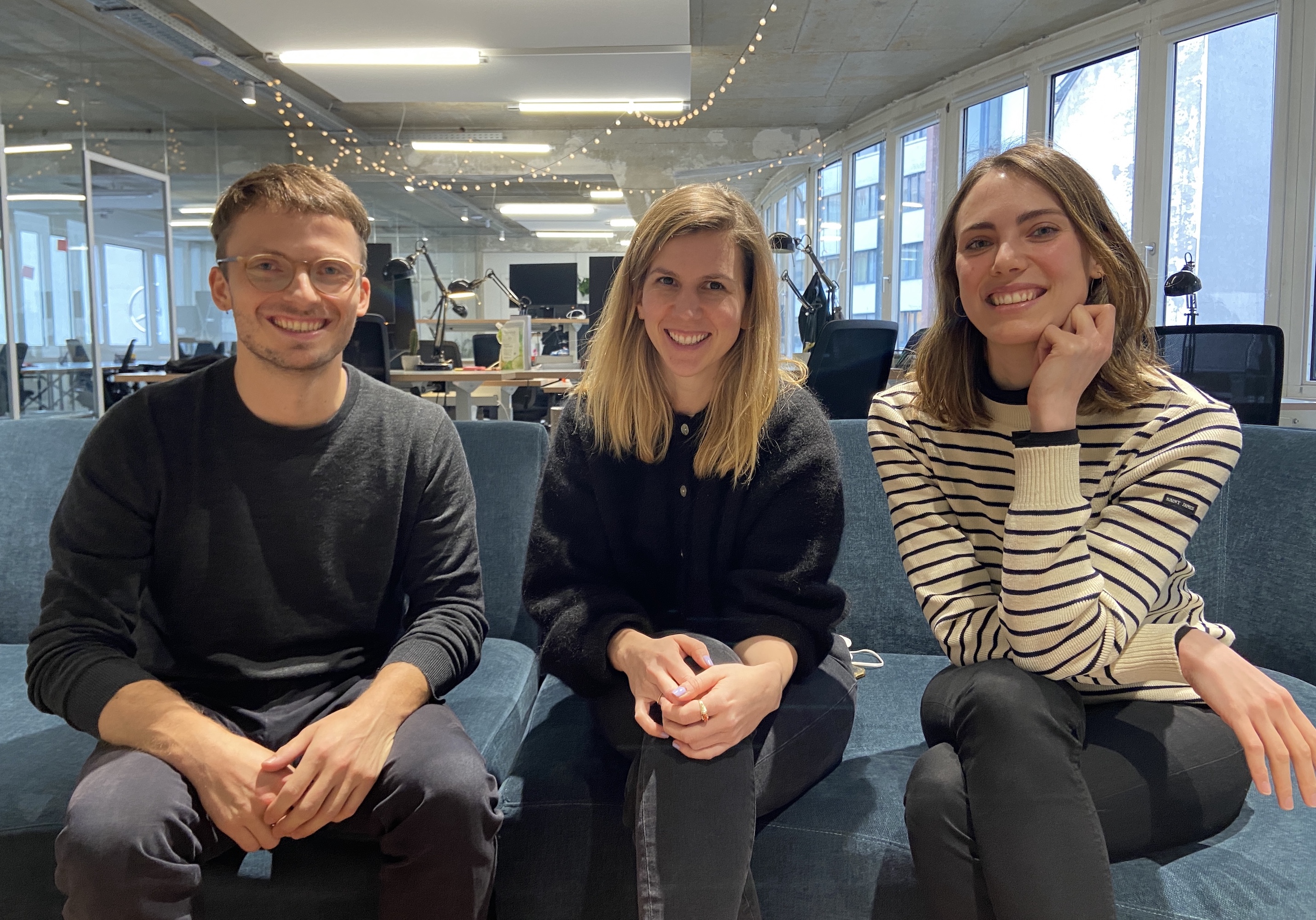
Learning by doing: practice what you preach and listen to your users
As the only organisation in Germany to run such extensive fellowship programs within the federal ministries, we often find ourselves at the intersection of two worlds: the traditional government approach and an agile, new work approach. What we do has often never been done before in such depth and breadth, so we have to build the road in front of us as we travel down it.
We work in accordance to the same iterative principles that we teach: try out, reflect, change, repeat. That is how we continuously improve our fellowships. Some of the changes we have made to the program this year may be successful, others might not. Likewise, some hypotheses may be proven, others disproven.
We look forward to sharing what we learn in this next iteration and would love to hear from any other organisations dealing with similar hurdles!
Read more on the topic

